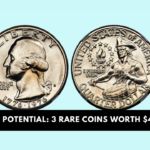The Internal Revenue Service (IRS) is reminding retirees to make required withdrawals from their retirement plans. This is because these retirement plans have deadlines at the end of the year. Therefore, it is essential that retirees make required withdrawals before the deadline.
This warning is especially important for retirees who are 73 years of age or older. This deadline applies not only to Individual Retirement Arrangements (IRAs) but also to other retirement plans. The IRS has also emphasized the updates introduced by the SECURE 2.0 Act.
Why should retirees who are 73 years of age or older take required minimum distributions set by the IRS?
According to the Internal Revenue Service, a required minimum distribution (RMD) is the amount of money that retirees who have IRA accounts or other retirement plans have to take out every year.
For your information, the IRS considers these distributions or withdrawals as taxable income. So, if these withdrawals are not made when you should, you may face penalties.
This means that you cannot keep money in your retirement plan account forever. Generally, retirees have to make withdrawals from their IRAs—SEP IRAs, SIMPLE IRAs, or other retirement savings plan accounts—when they attain the age of 73.
What does the IRS say about Roth IRAs?
In fact, the Internal Revenue Service claims that you do not need to make withdrawals from Roth IRAs. This is the same for designated Roth accounts in a 403(b) or 401(k) plan.
Of course, this is as long as the account owner is alive. Still, if you are a beneficiary of a Roth IRA or even a designated Roth account, there will be terms of required minimum distributions.
So, if you are a beneficiary, you have to follow these withdrawal rules. Remember that the RMD is just the minimum amount you have to withdraw every year. Of course, you can withdraw more if you need more money, provided you pay the taxes determined by the IRS if the amount you are withdrawing is taxable income.
Conclusion
This reminder from the IRS is of utmost importance for retirees, especially those who are 73 years of age or older. Ignoring required minimum distributions not only invites legal trouble, but it can also invite financial penalties. It is essential to use the money invested in retirement plans timely and correctly to avoid taxable income and potential penalties.
Retirees must ensure that they follow the deadlines and rules set by the IRS. Beneficiaries of Roth IRA accounts must be especially vigilant and follow the terms of required minimum distributions. Remember, this will help maintain your financial security and stability.
Making timely withdrawals can not only help you avoid legal troubles, but it will also keep your financial situation stable. So, if you or someone you know is 73 years of age or older, don’t ignore this important warning and make the required withdrawals from your retirement plan on time.
FAQs
Q. Why should retirees age 73 or older take RMDs?
A. Not taking the RMD set by the IRS can lead to legal troubles and financial penalties.
Q. Is the RMD only required for IRAs?
A. No, it’s required for other retirement plans, too.
Q. What are the withdrawal terms for Roth IRAs?
A. Withdrawals are not required as long as the account owner is alive, but there are withdrawal terms for beneficiaries.
Q. What does RMD mean?
A. The required minimum distribution (RMD) is the amount of money that retirees have to take out each year.
Q. What happens if you don’t take an RMD?
A. You may face a financial penalty if you don’t take an RMD.










